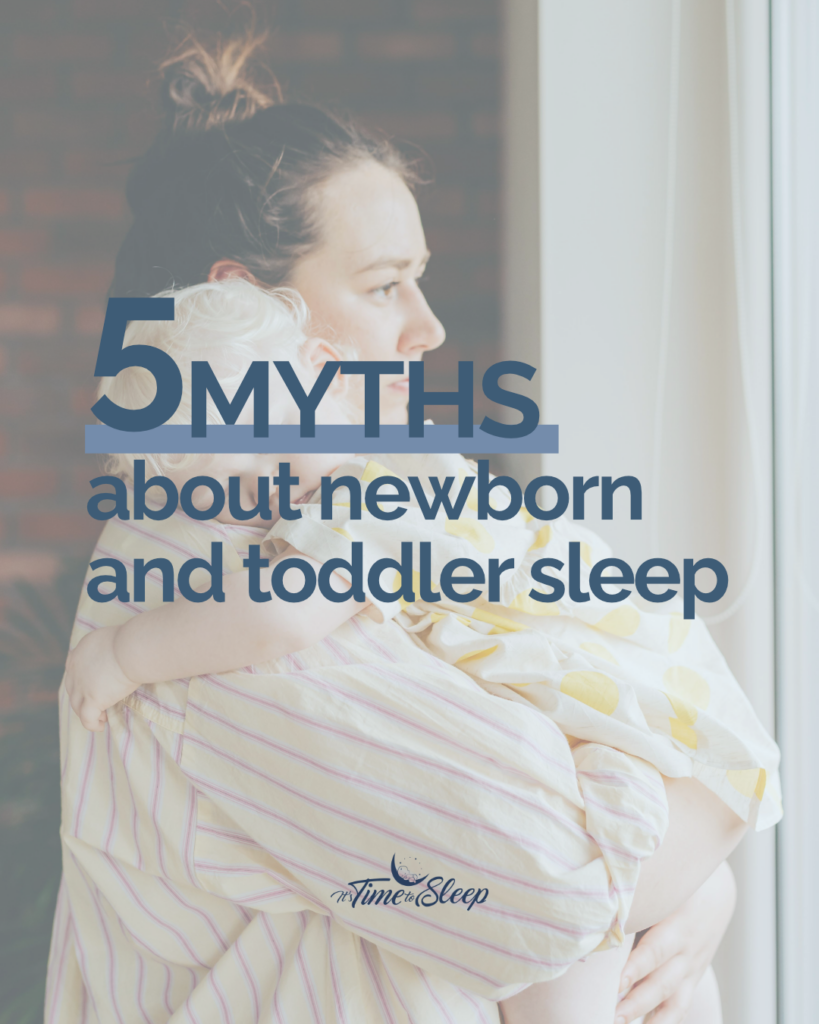5 Sleep Myths Every Parent Should Know

As a parent, you’re likely bombarded with advice on how to help your little one sleep better. But not all of it is helpful or even accurate! There are so many sleep myths floating around that it can be hard to know what to believe. Let’s clear up some of the most common misconceptions about newborn and toddler sleep so you can feel more confident in your approach to helping your child rest peacefully.
1. Myth: If they skip a nap, they’ll sleep better at night.
Truth: Skipping naps can actually have the opposite effect. While it may seem logical that your child will sleep better at night if they’re tired, the reality is that overtired kids often have more trouble falling and staying asleep. When a child is too tired, their body produces stress hormones like cortisol, which can make it harder for them to relax and settle down for a good night’s sleep.
Instead of skipping naps, try to keep a consistent nap routine that aligns with your child’s natural sleep patterns. Daytime rest is crucial for nighttime sleep, especially for toddlers and babies who need a good amount of sleep for healthy development.
2. Myth: Crying during sleep training will harm them.
Truth: This myth often stems from the misconception that crying means the baby is suffering or being traumatized. While it’s true that some sleep training methods can involve a little crying, it’s important to know that not all sleep training approaches involve letting your child cry it out for long periods of time.
There are many gentle, gradual methods of sleep training that can help your child develop independent sleep skills while keeping them emotionally safe. Sleep training isn’t about letting your child cry alone in distress; it’s about helping them learn to self-soothe and get the restful sleep they need.
3. Myth: Newborns should sleep through the night by 3 months.
Truth: If you’re expecting your newborn to sleep through the night by 3 months, you might be setting yourself up for frustration. While some babies may begin to stretch out their nighttime sleep as early as 3 months, most will still need to wake up for feedings and diaper changes during the night.
It’s completely normal for newborns to need nighttime feedings. They have small stomachs and are still developing the ability to go long stretches without needing food. Every baby is different, and it’s important to set realistic expectations for their sleep development.
4. Myth: If your baby wakes up in the night, it’s because they’re hungry.
Truth: It’s natural to assume that if your baby wakes up in the night, they must be hungry. But that’s not always the case. While hunger is one of the main reasons babies wake up, there are other factors that can cause nighttime wake-ups, such as teething, discomfort, or needing a diaper change.
Sometimes babies just need comfort, and that’s okay! Before rushing to feed them, take a moment to check if they’re actually hungry or if there’s something else going on that’s keeping them awake. Understanding the reasons behind your baby’s nighttime wake-ups can help you address them appropriately and avoid unnecessary feedings.
5. Myth: You can just “fix” sleep problems in a few days.
Truth: Unfortunately, there’s no quick fix for sleep problems. Building healthy sleep habits takes time and consistency. Whether you’re helping your toddler adjust to a new bedtime or teaching your baby to self-soothe, it’s important to remember that progress won’t happen overnight.
It’s easy to get frustrated when you don’t see immediate results, but rest assured that small, consistent changes will lead to lasting improvements in your child’s sleep. Be patient, and celebrate every little victory along the way!
Final Thoughts
Sleep is such an important part of your child’s development, and as a parent, it’s natural to want to get it right. But with so much conflicting advice out there, it can be tough to know where to start. The key is to remember that each child is different, and there’s no one-size-fits-all approach to sleep. What works for one family might not work for yours—and that’s okay!
By understanding the truth behind these common sleep myths, you can create a more realistic, gentle, and effective approach to helping your baby or toddler sleep better. And remember, you’re not alone in this journey!
If you have any questions or concerns about your little one’s sleep, don’t hesitate to reach out. As a certified sleep consultant, I’m here to guide you through every step of the way toward healthy, peaceful sleep for both you and your child.
Do you have a sleep myth you’ve heard that you’d like me to address? Drop it in the comments below, and I’d love to help!
CATEGORY
1/20/2025
COMMENTs